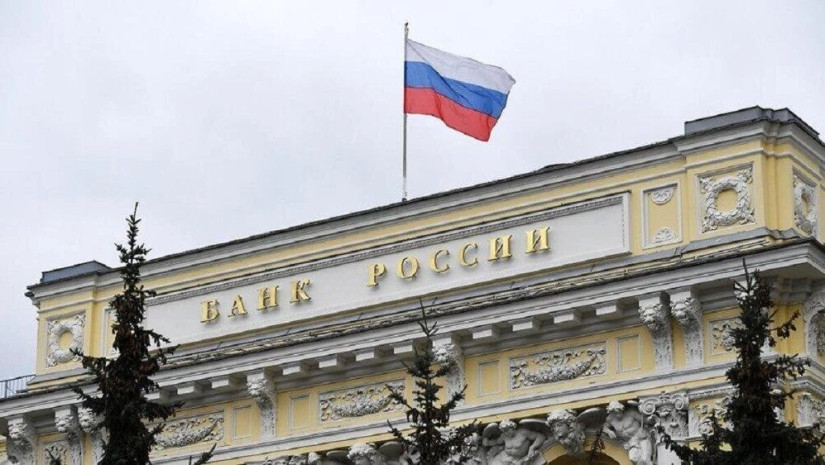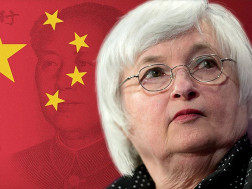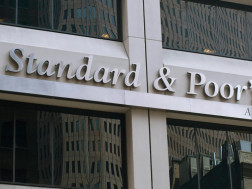Russia’s Central Bank was forced to halt foreign currency purchases Monday in a bid to stop a dramatic slide in the value of the ruble.
The Russian currency was down 2.3% by Monday afternoon against the U.S. dollar — a significant move in the foreign currency markets — trading at 79.3 at one point. That was its weakest level in 14 months and just shy of its all-time low, The Moscow Times reports.
“The Bank of Russia has decided not to purchase foreign currency on the domestic market … from 15:00 Moscow time on Jan. 24,” the regulator said in a statement.
“This decision was made in order to reduce the volatility of financial markets,” it added.
Russia’s Central Bank typically buys foreign currency using the proceeds of Russia’s oil and gas exports. This so-called “fiscal rule” is designed to reduce the currency’s volatility in response to swings in the value of global commodities — a previous weakness which had accentuated economic pressures during periods of turmoil.
It mandates Russia to convert cash from oil sales into foreign currency by selling rubles when global oil prices are above a benchmark level of around $44 a barrel. Oil is currently trading at around $88, meaning the Central Bank has been selling significant amounts of rubles in recent days — accentuating the pressure on the currency stoked by fears of a Russian invasion of Ukraine, analysts say.
The Russian currency immediately gained, dipping below 79 against the dollar in response to the announcement.
Analysts had previously expected that the Central Bank would not intervene until the ruble fell through the symbolic 80-mark against the dollar. Following a precipitous slide in trading Monday, that level looked like it could have been breached had the Central Bank not stepped in.
The decision came as Russian markets were in near freefall Monday, with tens of billions of dollars wiped from the value of the country’s largest firms amid growing fears of an imminent Russian invasion of Ukraine.
At least three countries — Australia, Britain and the U.S. — started partial evacuations of their embassies in Kyiv, the Ukrainian capital, while more Western countries advised people not to travel to Ukraine or Russia. NATO allies have warned a Russian invasion of Ukraine, where it has amassed some 100,000 troops, could be imminent.
The Russian stock market plunged 10% at one point Monday. It pared the worst of those losses, to trade at 7% down during afternoon trading in Moscow, but the market has now lost a third of its value since late October, when Russia’s military buildup began.
The Central Bank did not give a timeline for when it would resume foreign currency purchases, saying that itwould be guided by “the situation in the financial markets.”
Traders were also ditching the Russian currency en masse before the Central Bank’s announcement, fearful that any Russian aggression could result in hard-hitting sanctions against the Russian economy and put the ruble under more pressure.
“The negative geopolitical situation — which is threatening to worsen — is exerting pressure on ruble assets. Only a reliable and steady improvement can prevent further weakening of the ruble,” said BCS Investments analyst Dmitry Babin.
Russian companies have lost a combined $160 billion in value since Jan. 1, according to market data.
Kremlin spokesperson Dmitry Peskov blamed “global pessimism” for the sell-off of Russian assets, and said stock prices would bounce back once NATO dropped its hostile approach towards Russia.
The U.S. and NATO have ruled out agreeing to Russia’s demands that the alliance roll back its troop deployments from eastern members and give a legal guarantee that Ukraine and Georgia will never join.
















